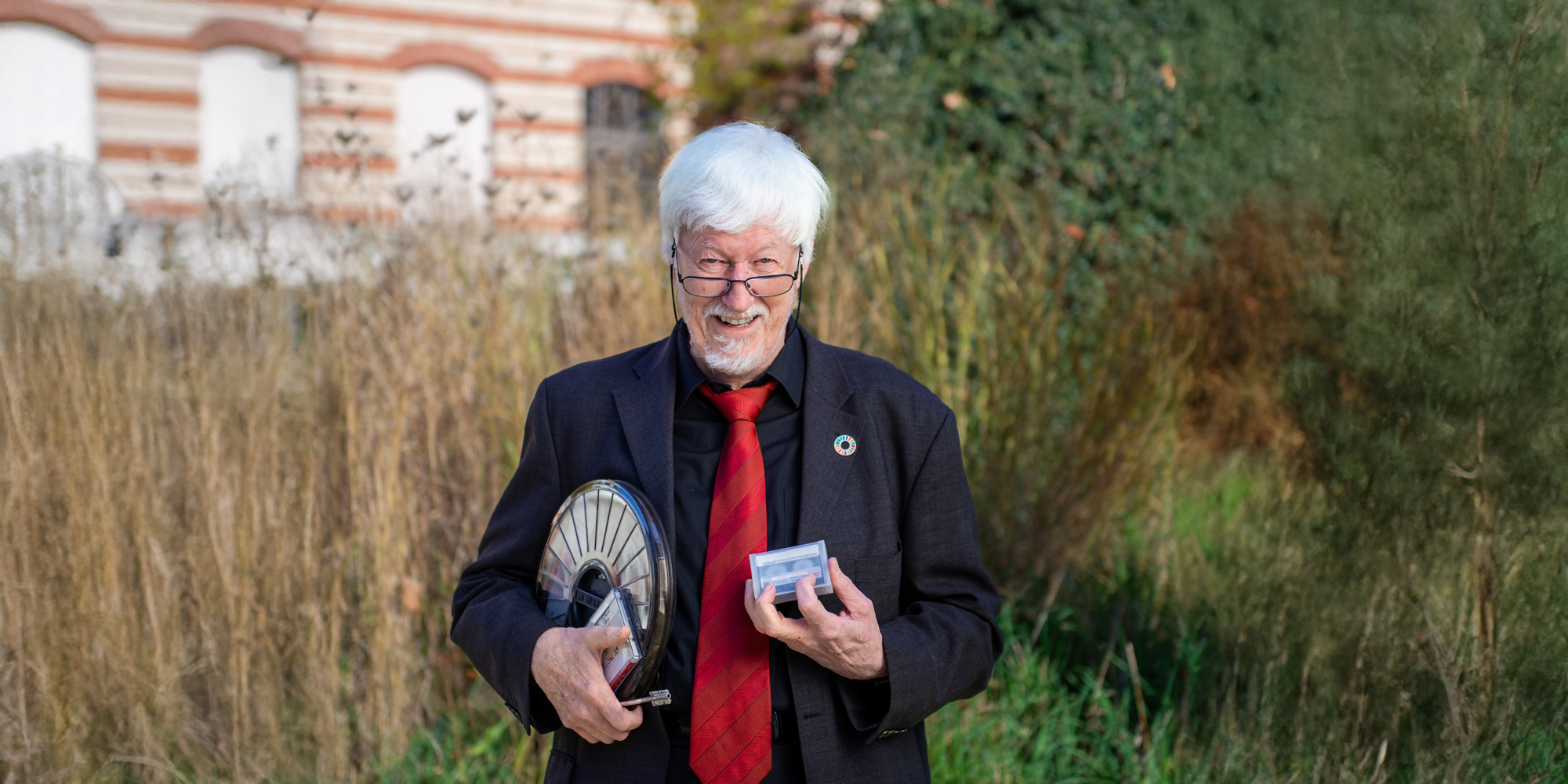He set the tone for climate
On 2 December, Andreas Fischlin will give his farewell lecture. Time for a profile of the systems ecologist who fought against climate change at the highest political level.

“I was lucky enough to be able to continue working for ten years after my retirement” is something you’d only hear from a person who loves their job or had a lot of responsibility, like Andreas Fischlin. Until June 2023, he was Vice-Chair of Working Group II of the Intergovernmental Panel on Climate Change (IPCC), where he was active for over 30 years. A pioneer in his field, he modelled ecosystems to predict how climate change will affect even the smallest habitats. But he’s not quite finished yet.
From music to ecology
His mother was a visual artist, his father a professional musician, and he himself was still toying with the idea of become a musician during his undergraduate years. “My band at the time was meant to open for Pink Floyd.” But he put aside the instruments and decided on science for his degree instead. “It was clear to me that it had to be ecology. My goal was to model ecosystems.” Nothing like that existed at the time, so he looked for professors who would support him and “cobbled together” a degree out of zoology, botany, mathematics and systems theory himself.
After a postdoc in Canada, he worked half in entomology and half in electrical engineering. “Then I got a call from the ETH department head at the time. In the midst of debates about forest dieback, environmental pollution, acid rain and Chernobyl, in the late 1980s we were told to start thinking about a new degree programme. The then Department X of Natural Sciences appointed Dieter Imboden, Andreas Gigon, Alois Weidmann and myself to develop a proposal. We concocted the degree programme of Environmental Sciences – and we and ETH were bowled over by how successful it was!” Fischlin relates in his animated manner.
From ecology to climate policy
Because he started working on climate issues and their effects on terrestrial ecosystems early, Fischlin became a coordinating lead author of the IPCC Report back in 1992. In this capacity, he contributed to the IPCC being awarded the Nobel Peace Prize in 2007. In the late 1990s, the Swiss Academy of Sciences (SCNAT) asked him whether he would like to accompany the Swiss delegation to the UNFCCC negotiations as its scientific representative. “First I said: no, I don’t have the time. The third time they asked, I said: OK, but just this once. That turned into 17 years between then and the Paris Agreement, during which I participated in all climate negotiations as a member of the delegation.”
A maestro in the climate negotiations
Putting the climate negotiations on a scientific footing wasn’t always easy, Andreas Fischlin recalls of COP 2009 in Copenhagen. Furious delegates wrangled with the Danish prime minister, who was leading the negotiations. “I ran after them and called: why do you put your personal pride over everything else in such a historic hour?! That stopped them short. To my knowledge, a breakdown of negotiations like that had never happened before.”
Once the climate train was back on track, Fischlin was asked in 2013 to lead the structured expert dialogue of the first periodic review of the UNFCCC. The task was to review the limit of 2 degrees of global warming suggested in Copenhagen in light of the latest scientific findings. “We looked at where things stood and it was clear that a lower limit of 1.5 degrees was more sensible when you considered the negative consequences of the less than 1 degree of warming that had already occurred at that time. This was incredibly successful. The scientific arguments we had prepared were widely discussed at the Paris Agreement 2015 and the governments agreed on a limit of 1.5 degrees.”
A life for the larch bud moth
No matter which offices he has held, Fischlin has never forgotten the larch bud moth, the fascinating insect he wrote his dissertation about. What makes this moth so unusual is a cyclical phenomenon with evidence stretching back thousands of years: its population grows a thousandfold within only about four years and then collapses again for the following four years. Millions in research funding has been spent on the project since the end of the Second World War. “Every year, an army of employees around the Alps climbed into trees, cut off larch boughs and counted the caterpillars in the branches to track the population density over the years.” The cause of these regular cycles is still not fully understood. Fischlin’s office is filled with endless stacks of folders and digitally stored datasets awaiting complete publication.
The research project began in Fischlin’s birth year of 1949 and centralised data from its beginning until 1978 were stored on cassette tapes for which there is no longer a device in the world that can read them. “The pinch rollers in them have all melted like chewing gum,” Fischlin says, adding: “It looks like I’m the last of the Mohicans who might be able to read back this data and publish it in the right context.”
With hope for our future
Despite all the challenges currently facing us, Fischlin remains optimistic. “The good thing about the climate problem is that every little effort is worth it. There’s so much at stake that hope dies last.” There’s no question that he and his work have made an indispensable contribution to preserving humanity’s habitat as far as possible. We hope the right farewell music will play after his final lecture. If he had his way, it would be Frank Zappa.
Farewell lecture
On Monday, 2 December at 5.15 p.m., Professor Andreas Fischlin will deliver his farewell lecture, titled Climate crisis, environmental systems sciences and the larch bud moth in the Audi Max. The event will be external page livestreamed.
Comments
No comments yet